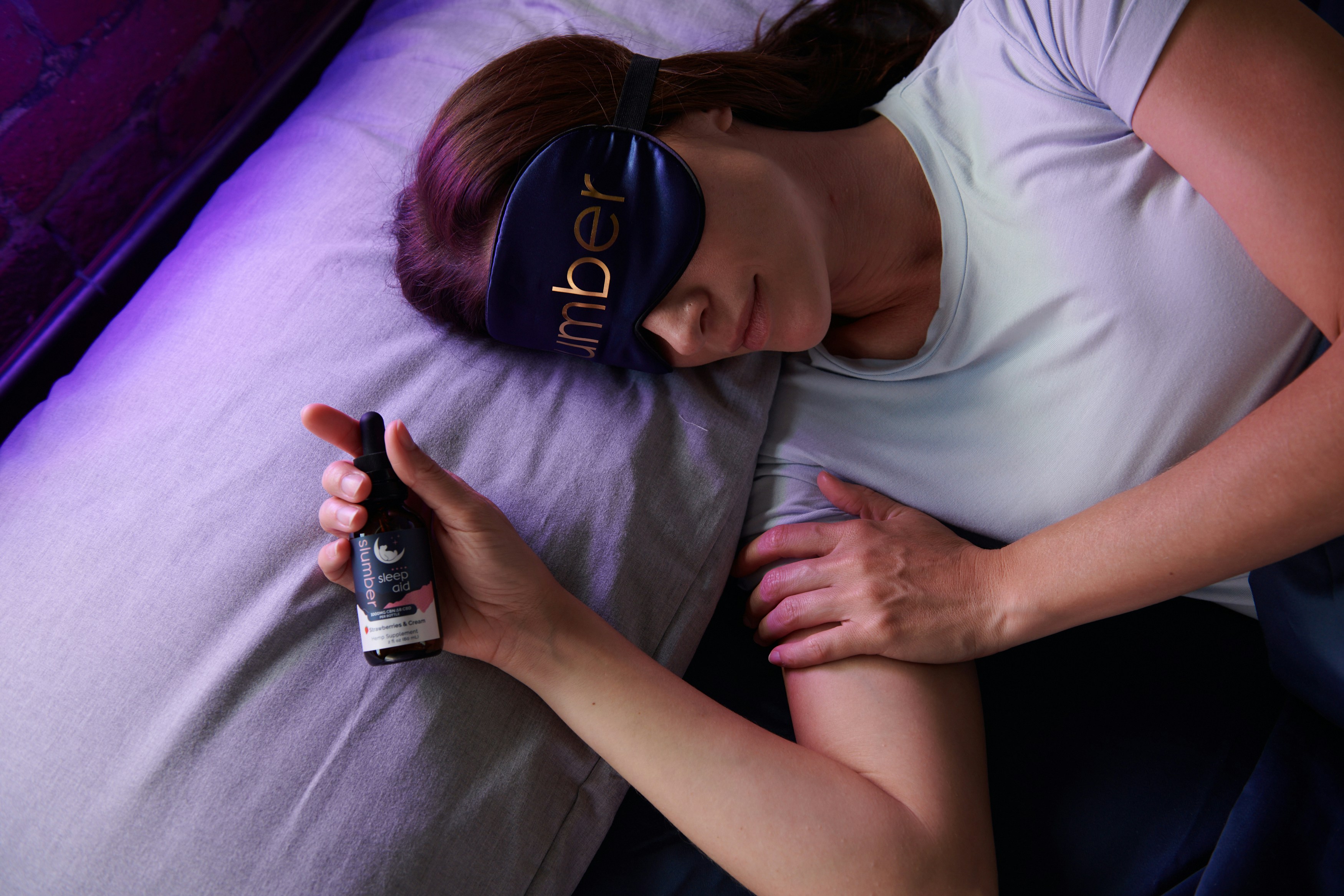The Impact of Sleep on Mental Health: How Restful Sleep Helps Manage Anxiety and Depression

Introduction
In today’s fast-paced world, mental health issues like anxiety and depression are becoming increasingly prevalent. These conditions can have a profound impact on our daily lives, but what many people don’t realize is that sleep plays a crucial role in managing and alleviating these issues. Sleep and mental health are deeply interconnected—getting enough quality sleep can improve mood, reduce stress, and even help prevent mental health disorders.
In this article, we’ll explore the powerful connection between sleep and mental health , focusing on how restful sleep can help manage anxiety and depression . We’ll also look at how poor sleep can exacerbate these conditions and offer tips for improving sleep to support better mental well-being.
1. The Link Between Sleep and Mental Health
1.1 The Role of Sleep in Brain Function
Sleep is not just about resting the body; it’s also crucial for maintaining optimal brain function. During sleep, the brain processes emotions, consolidates memories, and regulates mood. Without adequate sleep, the brain’s ability to function properly is compromised, which can lead to cognitive impairments and emotional instability.
- Restful sleep allows the brain to repair itself, flush out toxins, and restore neurotransmitter levels that are critical for regulating mood.
- Sleep helps balance key hormones such as serotonin , dopamine , and cortisol , which are all important for emotional regulation.
Inadequate sleep can interfere with these processes, leading to mood swings, irritability, and heightened feelings of anxiety or depression.
2. How Poor Sleep Contributes to Anxiety and Depression
2.1 The Role of Sleep in Anxiety
Anxiety is often characterized by excessive worry, nervousness, and a constant feeling of unease. Research has shown that there is a direct link between sleep deprivation and increased anxiety symptoms.
- Sleep deprivation can elevate cortisol (the stress hormone), which exacerbates feelings of anxiety.
- Lack of sleep can also impair the brain’s ability to regulate emotions, making it harder to manage stress and increasing vulnerability to anxiety.
People with anxiety disorders often report difficulty falling asleep or staying asleep, which creates a cycle of poor sleep and worsening anxiety symptoms.
2.2 The Connection Between Sleep and Depression
Depression is a complex mental health disorder that involves persistent feelings of sadness, hopelessness, and a lack of interest in daily activities. Sleep problems, particularly insomnia , are one of the most common symptoms of depression.
- People with depression often experience disturbed sleep patterns, such as difficulty falling asleep, waking up early, or feeling unrefreshed after sleep.
- Sleep deprivation can worsen the symptoms of depression by affecting mood regulation, cognitive function, and the body’s ability to cope with stress.
In fact, poor sleep is both a symptom and a potential cause of depression, creating a vicious cycle that can be difficult to break without intervention.
3. The Science of Sleep and Mental Health
3.1 Sleep Stages and Their Impact on Mental Health
Sleep consists of several stages, each serving a distinct function in maintaining mental and physical health. These stages include:
- NREM (Non-Rapid Eye Movement) Sleep : This is the deep restorative sleep where the body repairs itself, and the brain consolidates memories.
- REM (Rapid Eye Movement) Sleep : This stage is crucial for emotional processing and memory consolidation. During REM sleep, the brain processes emotional experiences, helps regulate mood, and fosters problem-solving abilities.
Disruptions to these sleep stages can significantly impact mental health:
- REM sleep is particularly important for managing emotions and stress. Lack of REM sleep has been linked to increased emotional instability, which can contribute to anxiety and depression.
- NREM sleep helps with the restoration of brain function and the regulation of neurochemicals that influence mood. Poor NREM sleep can lead to cognitive impairment and poor emotional regulation.
4. How Good Sleep Helps Manage Anxiety and Depression
4.1 Sleep as a Natural Stress Reliever
Good sleep plays a fundamental role in reducing stress and promoting emotional resilience. During restorative sleep, the brain processes and deals with stressful experiences, helping to reduce the emotional intensity of these events.
- Sleep helps regulate the body’s response to stress by lowering cortisol levels and improving emotional regulation. With enough sleep, you are better equipped to handle stress without it escalating into anxiety or depression.
4.2 Sleep and Emotional Regulation
Restful sleep helps the brain process emotions, regulate mood, and enhance emotional stability. During sleep, the brain works to reduce the emotional weight of difficult experiences and helps you manage negative feelings more effectively.
- People who sleep well tend to have better emotional responses to daily stressors, whereas sleep-deprived individuals may have exaggerated emotional reactions.
4.3 The Role of Sleep in Cognitive Function
Sleep also plays a vital role in cognitive functions such as attention, memory, and problem-solving. Lack of sleep impairs cognitive function, making it harder to focus, remember important tasks, or think clearly.
- Impaired cognition can worsen symptoms of anxiety and depression, as individuals may struggle with negative thoughts, rumination, or difficulty making decisions.
5. Tips for Improving Sleep to Support Mental Health
5.1 Create a Consistent Sleep Schedule
Establishing a consistent sleep schedule is crucial for improving sleep quality and supporting mental health. Going to bed and waking up at the same time every day helps regulate the body’s internal clock and makes it easier to fall asleep and wake up refreshed.
- Try to stick to a sleep schedule even on weekends, as irregular sleep patterns can disrupt the circadian rhythm and make it harder to sleep well.
5.2 Create a Relaxing Bedtime Routine
A relaxing bedtime routine can help prepare your body and mind for sleep. Activities such as reading, listening to calming music, or practicing meditation can signal to your brain that it’s time to wind down.
- Avoid stimulating activities, such as using electronics or engaging in stressful discussions, right before bed.
5.3 Minimize Caffeine and Alcohol Intake
Caffeine and alcohol can interfere with the quality of your sleep. Caffeine is a stimulant that can keep you awake, while alcohol disrupts the sleep cycle, particularly REM sleep .
- Avoid consuming caffeine in the afternoon and evening, and limit alcohol consumption, especially close to bedtime.
5.4 Address Sleep Disorders
If you’re struggling with chronic insomnia, sleep apnea, or other sleep disorders, it’s important to seek professional help. Sleep disorders can exacerbate anxiety and depression, making it difficult to break the cycle of poor sleep and mental health issues.
- A healthcare provider or sleep specialist can help diagnose and treat sleep disorders effectively.
6. Conclusion
Sleep is a powerful tool for managing mental health, particularly when it comes to conditions like anxiety and depression . By prioritizing restful sleep , you can significantly improve mood, reduce stress, and enhance emotional resilience. On the other hand, poor sleep can exacerbate mental health issues, creating a vicious cycle of insomnia and emotional instability.
If you’re struggling with anxiety or depression, improving your sleep habits may be a simple yet effective way to support your mental health. Remember, sleep is not just about resting the body—it’s about restoring the mind and emotions as well.
"A good laugh and a long sleep are the two best cures for anything." – Irish Proverb




